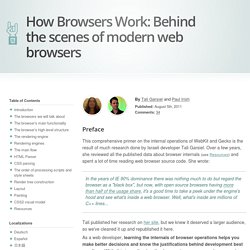

S HTML5 Adventure. Be on the lookout!

Wooga has just released a very special creation into the wild as an open source project. That creation is ‘Pocket Island’, a HTML5 game developed by Wooga that is now available for all to download and iterate upon. Pocket Island is the result of an ambitious one year project here at Wooga with the original goal being to push HTML5 gaming into new territory and create one of the world’s most advanced HTML5 titles. One year later and it’s mission accomplished.
Now, Wooga wants to see how the HTML5 community can use the lessons learned from Pocket Island and develop the technology forward to the point where it’s fit for mass market consumption. A long, long time ago…How a magic island became a pocket one Pocket Island originally started life as Magic Land, a native Facebook app that was well into its development cycle when the buzz surrounding HTML5 reached fever pitch in early 2011. Back, to the Future As the project continued to progress, so did the industry. Wooga/Pocket-Island. Facebook should be worried about Wooga’s HTML5 exit — European technology news. Making a Speedy HTML5 Game. This is a guest post by Sean Soria of Gamzee, a leader in HTML5 game development. In this post, he describes the potential of creating a city build using HTML5, as well as the trial and tribulations and how you can avoid them. Back when we started Gamzee, a lot of people in the game industry were down on HTML5.
The hopeful ones said that HTML5 was the wave of the future, but it just wasn't stable or fast enough to make the big sort of 'Ville-type Flash games that dominate social gaming today. So what did we do? We set out to make a big, isometric game in HTML5. Pretty unambitious, right? In case you don't want to read the rest of this blog post, the results of all that work is here (apps.facebook.com/skyscrapercity). What We Learned Was it easy to make? What did we learn? Way more people play the game on mobile devices than we expected One of the reasons we wanted to make a cross-platform HTML5 game is because we're all gamers. You have to do a lot of experimentation Don't do stacking(!)
HTML5: Too Good To Be True? GameDuell's Michael Kalkowski and Jonas Gebhardt pull apart the problems and myths around HTML5 Although HTML5 is currently present everywhere in game development, most developers feel that the technology will be an important asset tomorrow, not today.

GamesIndustry International recently discussed this topic in great detail with several mobile developers, and James Austin of Turbulenz has also weighed in. As Europe's leading social/casual developer, we felt a need to share our own thoughts and insights that have come from working with HTML5 on several GameDuell projects. HTML5 may be the future, but it certainly isn't ready to be the main platform of the present. Any serious game developer (especially in the web/mobile field) needs to explore the new language in order to prepare for that future, but there are several obstacles that need to first be addressed and overcome before HTML5 saves us all. Players First! No gamer these days wants to be bothered with downloading a game. How Browsers Work: Behind the scenes of modern web browsers. Web browsers are the most widely used software.

In this primer, I will explain how they work behind the scenes. We will see what happens when you type google.com in the address bar until you see the Google page on the browser screen. The browsers we will talk about There are five major browsers used on desktop today: Chrome, Internet Explorer, Firefox, Safari and Opera. On mobile, the main browsers are Android Browser, iPhone, Opera Mini and Opera Mobile, UC Browser, the Nokia S40/S60 browsers and Chrome–all of which, except for the Opera browsers, are based on WebKit. The browser's main functionality The main function of a browser is to present the web resource you choose, by requesting it from the server and displaying it in the browser window. The way the browser interprets and displays HTML files is specified in the HTML and CSS specifications.
Browser user interfaces have a lot in common with each other. HTML5 game development issues. Q&A: Zipline CEO Todd Hooper, Mobile Games and the HTML5 Hype Cycle. As an evolving standard, HTML5 will be good for lots of different things.

Hybrid mobile calendar apps? Great. Social apps pulling content from the Web? Sure thing. Mobile games? For all the work that developers put in to make HTML5 a more dependable standard, it is not up to the specifications of game developers.